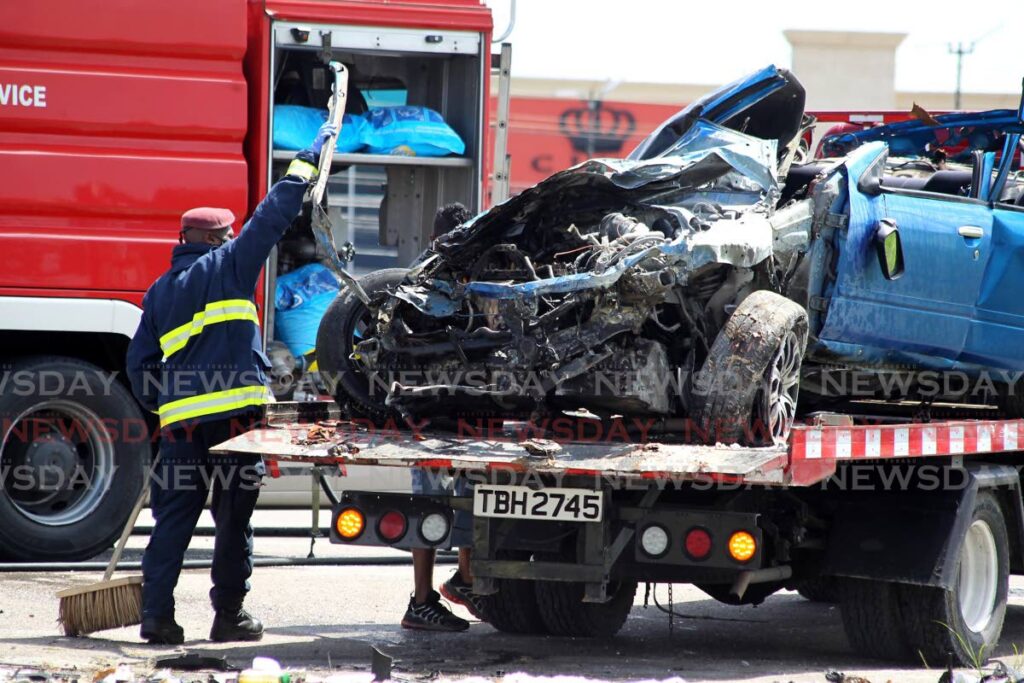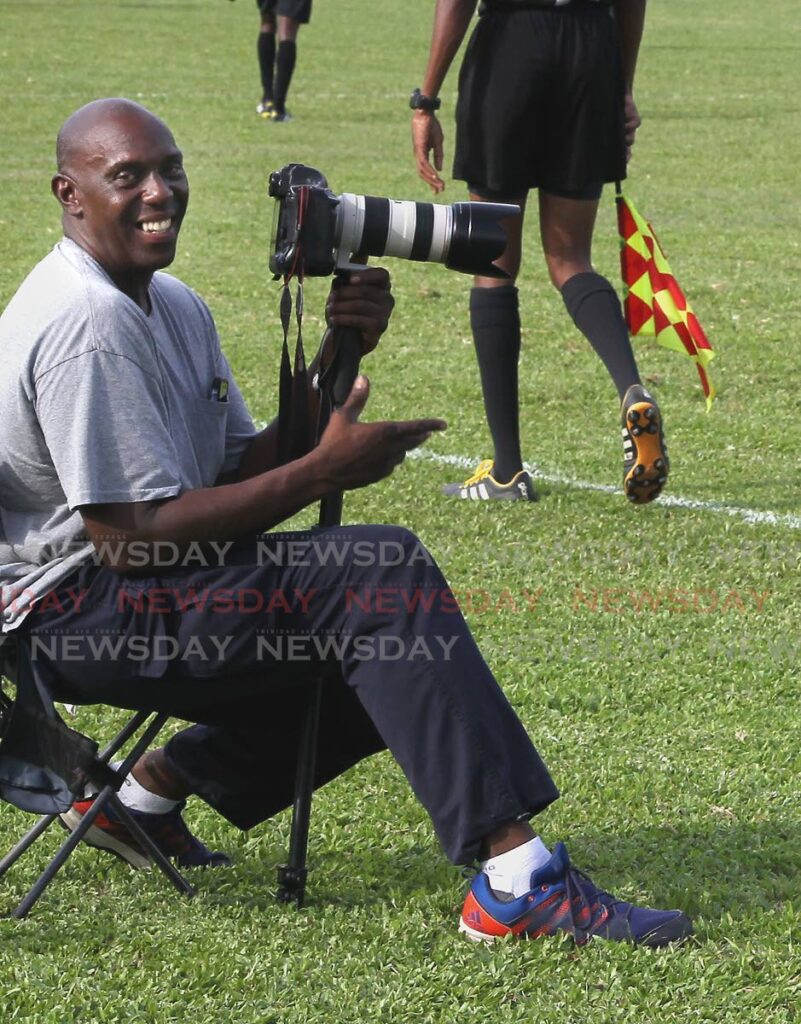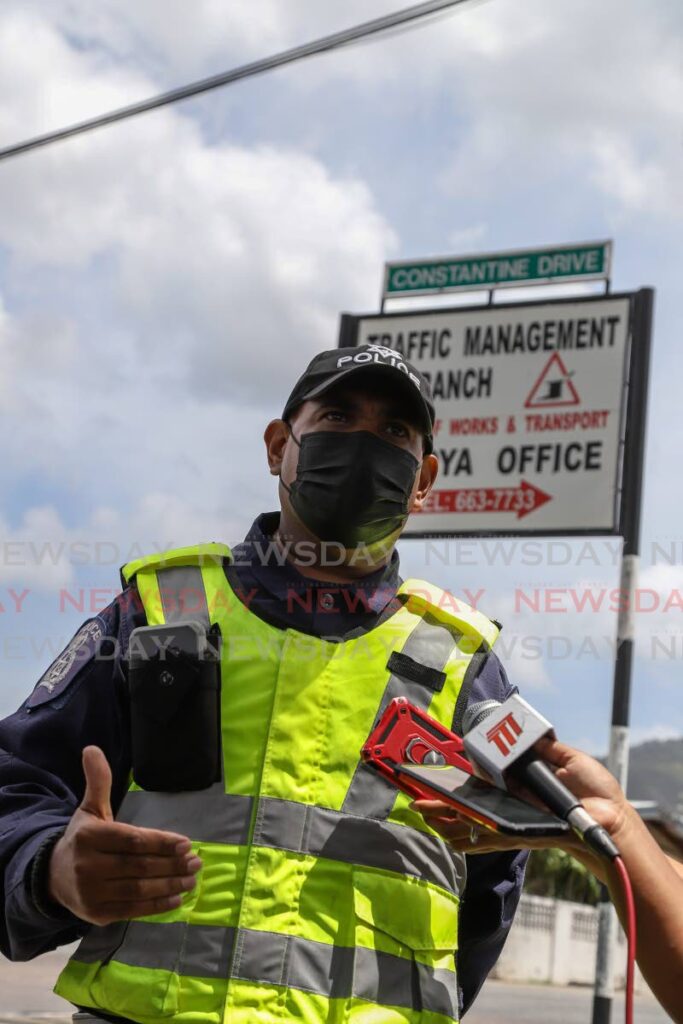Road deaths climb to 79: survivor recounts trauma of crash

THE world marks World Day of Remembrance for Road Traffic Victims on Sunday, and for many people, that has a personal, painful meaning.
One survivor is pleading with drivers to consider the trauma families are left to endure after road fatalities.
Each time Shurnelle Sobra, 25, sees a road-traffic accident, she’s nauseated.
This paranoia started 14 years ago on October 7, when Sobra got into a maxi designated to take her to school at Vessigny Secondary School, La Brea.
She said the maxi tried to overtake a bus when at the same time a vehicle was coming from the other direction. The maxi unsuccessfully tried to pull back into its lane, but collided with the bus.
“I just remember being on the side of the road covered in mud. I couldn’t move any part of my body. People were trying to wash mud from my eyes.
“My family believed I had died, because they didn’t see me on the scene.
"All this time I was in and out of consciousness while being taken to the hospital.”
She spent five days in the ICU unit with a broken leg, a fractured collarbone, bruised lungs and cuts to her head from the impact. Then she was moved to another ward and her leg was put in traction to help it heal.
“My parents asked that they put a cast on it, but they said I needed to learn to walk with crutches.”
After a full month of physiotherapy, her leg broke again when she tried to walk for the first time.
“I stayed in the hospital for another month, and this time with the cast my mother had asked for in the first place.”
Doctors eventually discharged her two days before Christmas, in a wheelchair and still unable to walk. She told Sunday Newsday her road to recovery had started, but a nightmare she thought was over returned to haunt her family in 2009 and 2013.
Her aunt and uncle were involved in a fatal car accident on Christmas morning. Her uncle died of his injuries and her aunt slipped into a coma and died months later.
Then in 2013, her sister, two cousins and another friend were involved in an accident. The friend died in the crash.
Sobra struggled even more in her recovery journey. She returned to school in January the year after the accident, and started walking in July.
“Every time I tell my story, I have a different experience.
"I won’t say I get sad over it any more. It’s more like a level of gratitude and some reflection at every stage of how far I’ve come.”
She urges drivers not to drink and drive, and to be patient on the roads.
“The accidents with me and my aunt involved alcohol. While you might survive the accident, the other people involved might not survive. Think about what their family would have to go through.
“To this day I still have anxiety. The only thing that helped me was God.”
As Sobra continues her long recovery, another woman is just starting hers after a car killed her father in a hit-and-run accident in July.
Anthony Harris, 60, who was a freelance sports photographer with Guardian Media Ltd, was hit by a car while cycling around the Queen’s Park Savannah, Port of Spain, on July 10. He died at the Port of Spain General Hospital the following day.

His daughter Charisse Harris felt it was important to let the public know of her trauma in an interview with Sunday Newsday on Thursday.
“No one speaks about it. It is real. People need to know seeking help is not a bad thing.”
Normally, the World Day of Remembrance for Road Traffic Victims would be an ordinary day for Harris, but this year it is a grim reminder of her father’s death.
Harris, the eldest of three daughters, said the family is “fair to fine – with lots of scattered showers," when asked how they have been coping.
She explained, “We are okay as we can possibly be. It is very hard on all of us, as my dad was the glue of the entire family. So a very important part of the family is missing.”
She urged families who are struggling to deal with the loss of a relative in a road-traffic accident to stick together.
“Tragedy and death does a lot to people, and if you see you are spiralling down a very slippery slope, do not be afraid to seek help and seek therapy. Nothing is wrong with you for seeking help therapy.
Today, she said, "means to me one of the recognised days to remember and appreciate victims of the road. Bike lives matter, regardless if it’s a motorcyclist (or) somebody riding a bicycle on the road just trying to get to point A to B. Their lives matter. Drivers need to pay a lot more attention of cyclist.”
Harris stayed away from the Savannah completely for almost three months after the accident.
She became emotional as she explained, “Everything gives me flashbacks. This entire ordeal has been horrific. It is my absolute worst nightmare. I wish I could turn back time to make sure it didn’t happen.”
“I took me months to drive around the Savannah. It’s now four months and counting since my dad passed, and it took me almost three months before I could drive in the vicinity of the incident.”
When she finally built up the courage to visit the area, she struggled to look at the spot where her father lay after he was thrown off his bicycle.
“The right lane should be made for cyclists alone. That’s how I feel at this point. Drivers need to read signs and pay attention and stick to the speed limit, especially around the Savannah.
The speed limit around the Queen's Park Savannah is 65 km. In 2015, the Ministry of Works and Transport decided cyclists will have access to the right lane between 4 am and 6 am and between 8 pm and 9.30 pm during the week. During the weekends and on public holidays cyclists have access to the right lane between 6 am and 9 am.
Even though there are two signs to remind drivers of this, Harris said that area isn't safe for anyone. “Before this, the Savannah was a safe place for me...Now it is not safe for me any more. I cannot walk around the Savannah. I cannot go to anything in the Savannah. It’s the last thing on my mind. I just do not feel safe, and that is horrible.”
She is in therapy, trying to come to terms with her loss and to battle the fear of driving, walking and attending events in and around the Savannah.
“Therapy has helped tremendously, because I was a lot worse than I am right now. Seeking help is important, and as I said before, I recommend for people like me to seek help if they need it.
“After my dad’s death I slipped into a deep depression. Getting out of bed was not something I wanted to do. Waking up on a daily basis was not something I wanted to do. I kept asking, why him? Why anybody?”
She will remember her father's passion for cycling at Arrive Alive’s cycle, walk or run event on Sunday to commemorate World Day of Remembrance for Road Traffic Victims at the National Cycling Velodrome in Balmain, Couva.
So far for 2022, 79 people have been killed in road-traffic collisions compared with 67 for the same period in 2021.
Brent Batson, police road and safety officer, said this represents an 18 per cent increase in road deaths.
Among the 79, there were 30 drivers, 14 passengers, 30 pedestrians, three motorcyclists and two cyclists.
Data from the past five years shows between 2017 and 2021, 525 people died in road accidents.

Batson told Sunday Newsday police continue to have challenges with enforcing the bicycle policy. He said cyclists fear using the right lane around the Savannah even during the allotted times because drivers refuse to give them the room and continue to overtake dangerously.
Batson said, “As one key stakeholder agency which is mandated with responsibility of public safety, we know first-hand how unsafe, reckless and illegal driving and irresponsible road use can quickly lead to serious or fatal collisions on the nation’s roads.
“The tragedy of almost all road-traffic collisions lies in the fact that they are preventable in nature. If only someone didn't drink alcohol and drive, or if they had obeyed the speed limit, or utilised a walkover instead of running across a six-lane highway, they may have been around to celebrate Christmas with their family and friends.
“Sadly, people are still gambling with their lives and the lives of others when it comes to road safety in TT.
"Imagine, for 2022, traffic-law enforcement officers issued 21,313 tickets to drivers for seatbelt violations – knowing that wearing a seatbelt is one of the most crucial devices to help save your life in a crash.
“Every life lost on the road is one too many and we will continue our enforcement and education efforts while partnering with our road-safety stakeholders such as the Licensing Division and Arrive Alive to help save lives and keep families together.”
Year*Number of Deaths
2017*116
2018*118
2019*121
2020*96
2021* 75

Comments
"Road deaths climb to 79: survivor recounts trauma of crash"